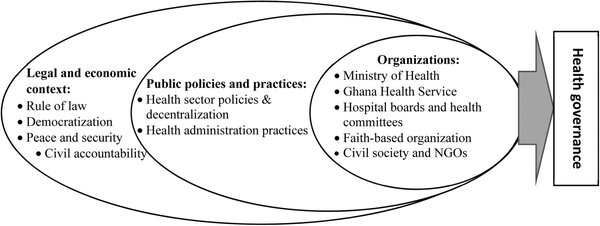De facto health governance policies and practices in a decentralized setting of Ghana: Implication for policy making and implementation
Read this Science Social and medicine: Health Systems paper here.
Current Universal Health Coverage (UHC) considerations confirm the need for strong governance in improving health sector performance. However, empirical evidence on the effects of decentralized health system governance remains limited in low-and-middle-income countries (LMICs). This paper assesses the de facto health governance policies and practices of the decentralized health system of Ghana and its implications, for better policy formulation and implementation.
The study found that tension regarding power relationships exists between the policies governing the health sector of Ghana, which has rendered the decentralization reform effort in health governance policies and practices uncoordinated, incoherent and sometimes contradictory. Implications of the de facto decentralized health governance policies and practice include: limited involvement of sub-national level in policy development; weak interaction between policy formulators and implementers; and political interference in policy implementations compromising evidence-based policy formulation.
Read this Science Social and medicine: Health Systems paper here.
